Free to Pray
By Leila Aboulela
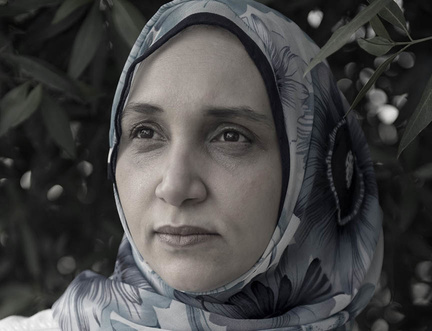
In 2018, we commissioned 51 authors from 25 countries to write essays exploring ideas about freedom for The Freedom Papers, a publication produced in partnership with Gutter Magazine. Read on for Leila Aboulela's essay, and visit guttermag.co.uk to purchase a copy of The Freedom Papers.
Every Friday, when my son, Kareem, was 13 years old, I would pick him up from school at noon and drive him to the mosque to pray. Friday prayers are mandatory for Muslim men (optional for women) and I wanted Kareem to become accustomed to this practice. After the prayers I would take him back to school. He was still in S2 and not allowed to leave the premises unaccompanied during his lunch break. I had written to the headmaster asking permission for Kareem to attend the Friday prayers at the local mosque, in the process absenting himself from the later part of a class as well as the whole of lunch. This special request was granted without fuss or questions.
My husband’s place of work was at the other end of town. For him to pick up Kareem from school and drop him off again afterwards would add an extra 20 minutes to his time away from the office. That was why I had to do it myself and I was glad that I could. Stepping through the school gates at noon, Kareem would find me with a packed lunch and his toddler sister in the back seat. As soon as he got into the car I would ask him, ‘Did you remember to sign out at the office?’ When he said, yes, I would drive off and he would start to devour his sandwich. This arrangement lasted until he was old enough to leave the school premises by himself. Not once did the school object or obstruct us; we were free.
The freedom to practice my religion in Britain and bring up my children as Muslims has been a vital part of my life. It is a freedom that is instinctive and personal. I cannot imagine mothering my children if I were forbidden from passing on my faith to them. It is my duty to teach them, to warn them, to give them guidance on how to navigate life. As adults they can choose how much religion to have in their lives, but they must have access to faith and wisdom, they must be Islamically literate. I would have been negligent if they had grown up without knowing the correct way to pray, if they had not normalized the practice of fasting, if they had not known about the life of the Prophet Muhammad. I had grown up in a Muslim country with the faith practised all around me. In Scotland, my children were growing up in a different environment. If I did not make an effort, if I did not provide them with the necessary education and experience, they would lose out.
This was why I also enrolled Kareem in a Muslim Saturday school. I was keen for him to make Muslim friends and I wanted him to feel part of a community. He did make long-term friends and benefited from the experience, however, the school’s choice of syllabus was unsatisfactory. The textbooks were sent from Saudi Arabia for free. Designed for Saudi Arabian schools, they were now being used to teach children who had lived all their lives in Scotland! The books had pictures of young boys in the white thobe that was the Saudi national dress, going about in a world that was segregated by gender. There was little in these books that Kareem could relate to. And the message enforced by the textbooks was detrimental – real Muslims don’t fit in Britain and the only proper Islam is the one found in Saudi Arabia. This Saturday school was a registered charity, but as far as I know, the syllabus was never scrutinised by British authorities - Muslim or otherwise.
To expect Muslim Saturday schools to be inspected by educational authorities is not an infringement on freedom of religion. It is a protection of the rights of the British child. I often cringed at the difference between the educational experience Kareem was getting at his Saturday school and his regular Scottish school. Untrained teachers, disruption, as well as the irrelevant textbooks. We Muslim parents thought we were doing the right thing, giving our children a slice of our culture, but from the children’s point of view the impression was more negative – they perceived the inferiority of their communities and by extension themselves. They internalized the idea that as Muslim children they were second best.
The freedom enjoyed by Muslim organisations in Britain has been at times abused. Even when no laws are being broken, a British Islam at ease in its setting is often not allowed to flourish. Religious freedom helped British Muslims, but it also allowed them to seek guidance and funding from foreign sources that fostered their own interests. They ‘followed home’ not only in the sighting of the Ramadan moon but also on edicts relating to dress and conduct. This was further fuelled by a vacuum in local Muslim leadership and imams who came from abroad, speaking English poorly and ignorant of British culture.
Freedom to worship is often taken for granted. Joining the two words ‘freedom and religion’ together, most people would think of ‘freedom from religion’. I too often find myself complacent. I tell myself that even Islamophobia, which is an extension of racism, does not directly pose a threat to private worship. But sometimes I wonder if I am burying my head in the sand. How does religious repression start? With well-meaning intentions of saving women from the burka? With intimidation to conform? History is full of warnings. When I read of how Stalin shut down mosques and Ataturk banned the call of the azan in Arabic, my blood runs cold. The present too is not entirely comforting - in China, students are forbidden from observing Ramadan. I tell my children if this ever happens here, you must resist or leave. Tell your children to tell their children too. If you can’t worship in Scotland, then you must go somewhere where you can. But for now, I feel safe. Now Britain is a good place in which to pray.
Copyright © 2018, Leila Aboulela. All rights reserved.
Supported by the Scottish Government’s Edinburgh Festivals Expo Fund through Creative Scotland.

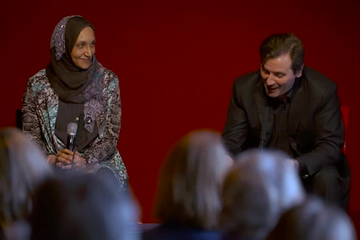
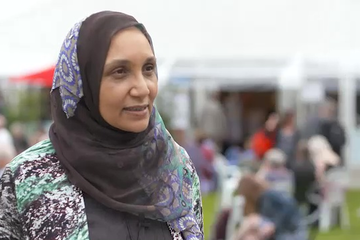
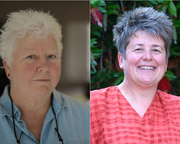
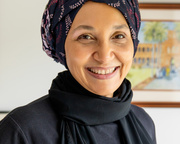
 Major new partnership with Celtic Connections
Major new partnership with Celtic Connections 

